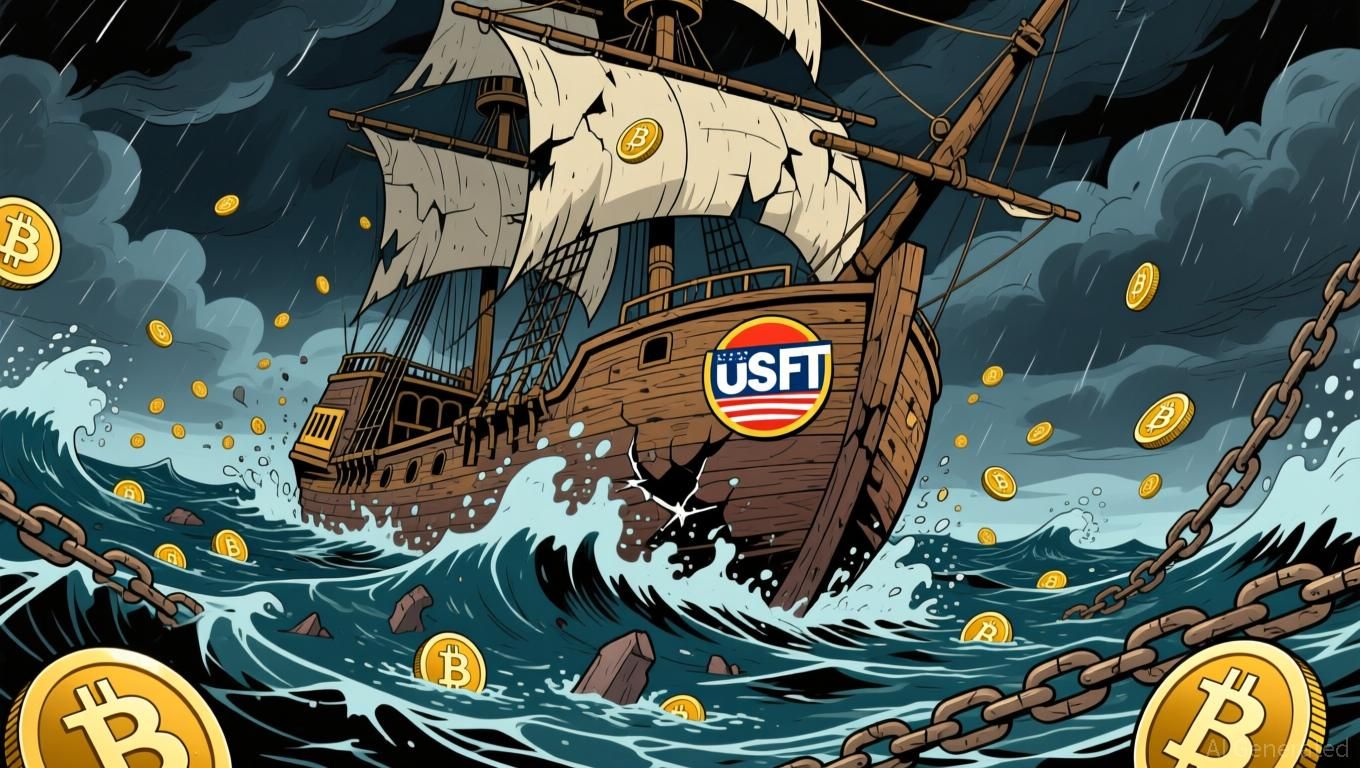News>
Bitcoin Updates: Tether Faces Scrutiny Over Stability—S&P Issues Caution While Crypto Community Responds
Bitget-RWA2025/11/26 22:46
By: Bitget-RWA
- S&P Global Ratings downgraded Tether's USDT to "weak," citing high-risk Bitcoin exposure and reserve transparency concerns. - Tether criticized the rating as "misleading," defending its 1:1 dollar peg and $135B Treasury holdings as evidence of stability. - The downgrade highlights regulatory tensions as USDT faces scrutiny under new laws requiring stablecoins to be fully backed by low-risk assets. - Despite risks, USDT maintains $184B market cap and $76B daily volume, underscoring its critical role in cr
S&P Global Ratings has reduced Tether's
USDT
stablecoin to its lowest stability category, labeling it "weak." The downgrade is attributed to Tether's growing investments in high-risk assets such as Bitcoin
and ongoing doubts about the transparency of its reserves according to reports
. This represents a notable change in the agency's evaluation, as USDT—the largest stablecoin globally—now faces increased examination amid stricter regulations targeting digital assets. S&P's action signals concerns that Tether's reserves might not be sufficient to cover potential losses from volatile assets, especially Bitcoin, which makes up 5.6% of USDT's supply
, exceeding the 3.9% overcollateralization buffer. S&P cautioned that if Bitcoin and other risky holdings lose value, the stablecoin could become undercollateralized according to the analysis
. 
The agency's review points to a broader pattern: Tether's reserves have increasingly shifted toward riskier assets over the last year, including gold, secured loans, corporate bonds, and Bitcoin
according to the report
. S&P highlighted that these assets are exposed to credit, market, and interest rate risks, heightening worries about Tether's ability to withstand market turbulence. The lack of clarity regarding the credit quality of custodians, reserve management, and asset separation according to the findings
adds to these vulnerabilities. The agency also took issue with Tether
for providing minimal information about its regulatory compliance and redemption processes, which fall short of the protections found in conventional finance according to the analysis
. Tether has rejected the downgrade, describing it as "misleading" and asserting that the rating methodology is not appropriate for evaluating digital-native currencies
according to company statements
. In its response, Tether pointed to its ten-year record of maintaining a 1:1 peg with the U.S. dollar and cited its $135 billion in Treasury holdings and $13 billion in yearly profits as proof of its stability according to financial reports
. CEO Paolo Ardoino dismissed the rating, arguing it reflects an outdated financial system that has missed major crises in the past, referencing the 2008 mortgage meltdown
. Tether also emphasized its importance as a financial tool in developing economies, enabling transactions in places like Turkey and Nigeria according to market analysis
. This downgrade comes as regulatory oversight of stablecoins intensifies. Earlier this year, the U.S. enacted the GENIUS Act, requiring stablecoins to be fully backed by low-risk assets such as Treasuries. Tether asserts that 77% of its reserves comply, but
its 8% share in secured loans
—worth $14 billion—raises questions about adherence. At the same time, Bitcoin's 30% drop from its October high has heightened concerns
about Tether's vulnerability to crypto market swings. Nevertheless, USDT's market value has climbed to $184 billion, with daily trading volumes over $76 billion, underscoring its established presence
in the digital asset market. S&P's move highlights the widening gap between traditional finance and crypto-focused firms. While Tether maintains it offers a digital dollar alternative, regulators and investors are increasingly calling for stronger protections. The agency's warning serves as a reminder of the challenges in maintaining stability in the evolving stablecoin sector according to the analysis
. Disclaimer: The content of this article solely reflects the author's opinion and does not represent the platform in any capacity. This article is not intended to serve as a reference for making investment decisions.
Lock now!
You may also like
Crypto prices
MoreBecome a trader now?A welcome pack worth 6200 USDT for new users!
Sign up now